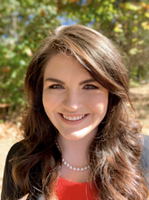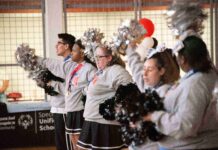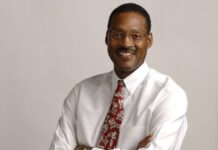
Even as the COVID-19 crisis squeezed millions of jobs out of the market, many UofL students pressed forward with their professional development plans.
One such student is Katie Davidson, who recently completed her second year at the Brandeis School of Law. The Louisville native is spending the summer interning with the U.S. Sixth Circuit Court of Appeals in Cincinnati.
Second to the Supreme Court, the Sixth Circuit is the highest federal court for Michigan, Ohio, Kentucky and Tennessee.
“When a case is being appealed from the federal district courts in these states, the Sixth Circuit has appellate jurisdiction. Margaret Lawrence and I, both rising third-year law students, are two of the four interns,” Davidson said. “We were told that UofL students had never worked in the Motions Unit before, which is interesting because this year there are two of us.”

Davidson said it was a shock when the pandemic spread in the U.S. and UofL classes moved online.
“Law school online was a challenge. I miss seeing my professors, friends and classmates in person. I miss the entire Brandeis community,” she said. “You would think that months into this, it would be easier, but some days are just as hard as the first.”
Davidson’s internship initially shifted to remote work since the closing of the Sixth Circuit courthouse in late April. That resulted in at least some changes in court operations.
“It [wasn’t] so much that the types of cases being heard are different, but the volume of litigants seeking release increased and has been complicated, especially for litigants sending materials from facilities that aren’t processing mail in a timely manner,” she said. Oral arguments were also held remotely in the early phases of the pandemic, following the lead of the Supreme Court.
Davidson’s internship has since moved to a hybrid model. She spends every other week working at the Cincinnati courthouse. The weeks she is not in Cincinnati, she works from home.
Davidson, who earned her BA in philosophy and history at Centre College, admits to being a bit nervous about jobs that will be available when she graduates, given a post-pandemic economy. She is already in the process of applying for post-graduate clerkships with both federal and state courts for summer/fall of 2021. She hopes to eventually work in courtroom advocacy.
“I’m interested in many areas of the law, and I’ve been lucky enough to have worked in a number of areas of the law as an undergraduate student and now as a law student,” she said. “I know that, whatever field I end up in, public service needs to be part of my career…I want to work hard this summer so that I can work toward becoming the advocate this community needs and deserves.”
As Davidson completes her virtual internship with the federal court amid a global health crisis, she has realized something that extends far beyond knowledge of the law and her planned profession.
“The most important thing I’ve learned, or maybe re-learned, is to be kind to myself. This is an extraordinary time we’re living in, and the first step to having compassion for others is to have compassion for oneself,” she said. “It’s simple, but I am empowered by the idea that I can give more to others by first taking care of myself. In the context of a pandemic, this has manifested in awareness of the suffering around me while also tending to the stress and anxiety that accompanies these uncertain times.”
Davidson is grateful to the UofL School of Law for its support during the pandemic.
“The entire Brandeis community has just been exceptional throughout this entire ordeal. The administration has catered to so many concerns, and their hard work behind the curtain has allowed us students to carry on in spite of extraordinary circumstances,” she said.
In fact, Davidson attended UofL for law school because of that general sense of community and “extremely supportive alumni.”
“I fell in love with the school after my first visit and I knew it would provide me all the tools I need to have a happy, rewarding legal career,” she said. Davidson expects to graduate in May 2021.
Story written by Stuart Esrock, associate professor in the Department of Communications. Contributions from Alicia Kelso, OCM.
































